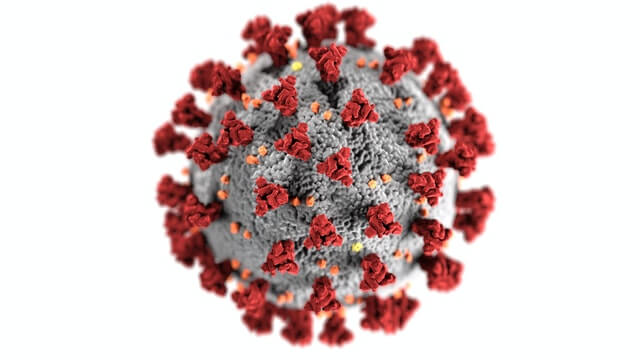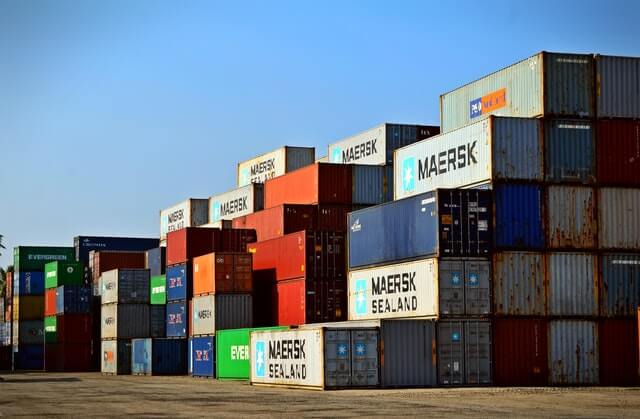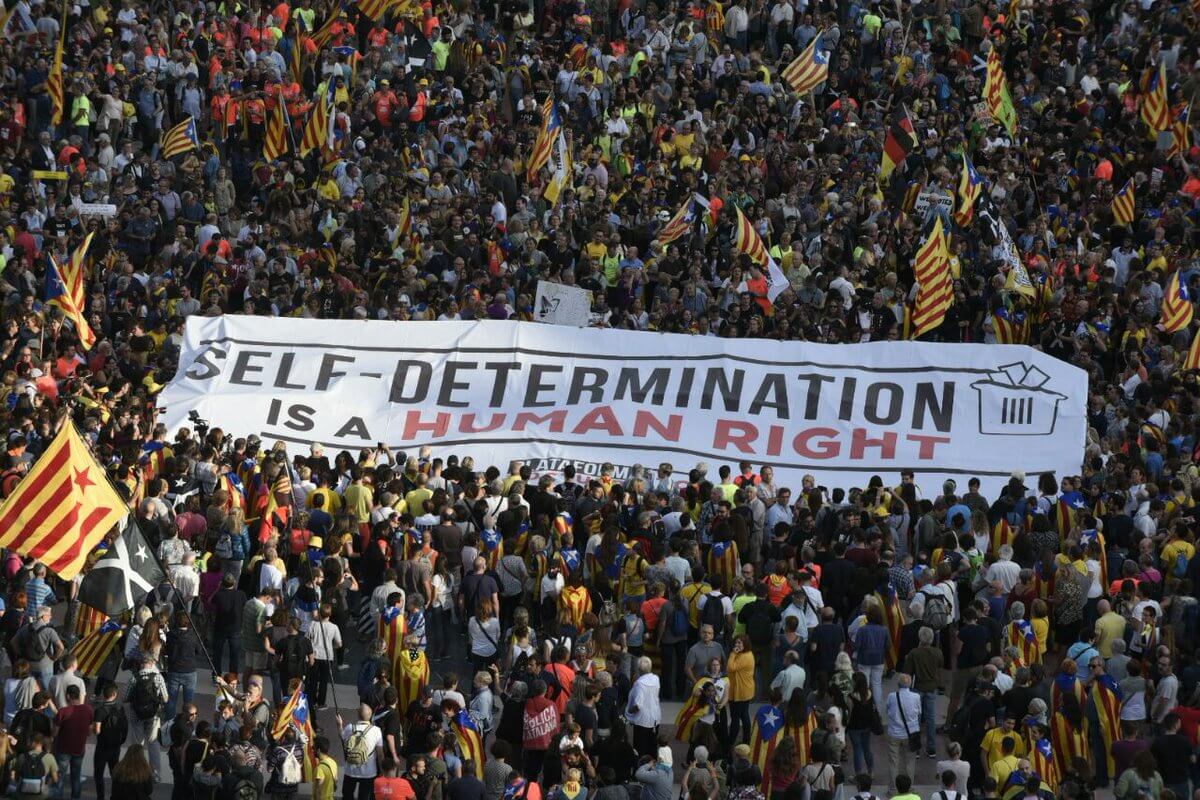This Blog is written by Sanjana Dwivedi from University of Petroleum and Energy Studies, Dehradun. Edited by Yash Jain.
This article will talk about the questions which generally rise in everyone’s mind which someone talks about diplomatic immunity. This article will further discuss whether diplomatic immunity is needed, whether it lead to abusive powers, whether too much privilege is being provided to the diplomats.
This Blog is written by Lakshay Jain from Jagan Institute of Management Studies (JIMS), Rohini. Edited by Lisa Coutinho.
Relationship is a very precious and sacred thing considered among Indians. These relations are either live-in or marital relations. The “married relations” are considered to be the most sacred relation in India and “live-in-relations” are not given that much priority and there is no law tying them together and consequently, either of the partners can walk out of the relationship, as and when, they will to do so.
This Blog is written by Priyank Sudhir Shah from Gujarat Law Society Law College. Edited by Harsh Sonbhadra.
The pandemic has caused a lot of disturbance throughout the world; the same has caused a lot of havoc throughout all the sectors of the business, the economy has suffered a lot due to this pandemic. This is an unprecedented event throughout the world, the world is struggling to tackle the same and been trying to save the economy and revive the same.
This Blog is written by Harsh Sonbhadra from Vivekananda Institute of Professional Studies (VIPS), Delhi. Edited by Lisa Coutinho.
India, being a democratic nation, is yet a developing country. At the same time, the crime rates in India are increasing at a higher pace. There are lots of legislation in India to stop and control crimes, but the crime rates are increasing as the prescribed punishments are just not sufficient.
This Blog is written by Shivani Agarwal from CPJ College of Higher Studies & School of Law, Delhi. Edited by Harsh Sonbhadra.
In 1976, the Tourism Society of England defines it as: “Tourism is the temporary, short-term movement of people to destinations outside the places where they normally live and work and their activities during the stay at each destination. It includes movements for all purposes.”
This Blog is written by Shivanshi Tripathi from Bharati Vidyapeeth New Law College Pune. Edited by Lisa Coutinho.
The definition of marriage as per legal dictionary is “Marriage means the state of being united to a person of the opposite sex as husband or wife in a legal, consensual and contractual relationship recognized and sanctioned by and dissolvable only by law”.
This Blog is written by Palak Sinha from Symbiosis Law School, Noida. Edited by Viral Agarwal.
Jurisdiction refers to the power or the authority given to the State, to deal with legal matters and circumstances within its territory. It is the right to enforce laws through the legislative, judiciary, or executive actions.
This Blog is written by Nikhil Mishra from Central University of South Bihar, Gaya. Edited by Harsh Sonbhadra.
Child labour is a multifaceted and controversial issue; it is a problem prevailing for many decades and is a challenge for many developing countries and developed countries. Many countries have enacted various laws and have taken serious steps to eliminate child labour, yet it is still a widespread problem throughout the world.
This Blog is written by Utkarsha Singh from University of Petroleum and Energy Studies, Dehradun. Edited by Uroosa Naireen.
We live in a world that not only turns a blind eye to animal cruelty, but condones it, either through indifference or by legislation. It is legal to raise chickens in deplorable conditions for the sole purpose of slaughter. If this is not animal cruelty, then what is? The problem is that there are not enough people fighting for animal rights.
This Blog is written by Oshin Gupta from CPJ College of Higher Studies & School of Law, Delhi. Edited by Prakriti Dadsena.
Mother, as well as a father, plays a vital role in their child’s birth, no one can decide who is more important in the upbringing of the child. The misconception is that only mothers have the responsibility of a child. Most of the countries have the provisions of maternity for mothers leave but only some recognize paternity leave for fathers.
This Blog is written by Simran Sahoo from KIIT School of Law, Odisha. Edited by Anshika Porwal.
The scrapping of Article 370 and 35A of the Indian Constitution grants special status to the state of Jammu & Kashmir in the Union of India with a decision to turn Jammu and Kashmir into a Union Territory with a legislature, similar to Delhi and Pondicherry, and the Ladakh division would be made a separate Union Territory without the legislature, akin to Chandigarh and most other Union Territories.
This Blog is written by Asmita Arora from Guru Nanak Dev University, Amritsar. Edited by Prakriti Dadsena.
In the world of conflicts and disputes, there is an urgent and necessary requirement for forming contracts between two parties to avoid future conflicts. Also, we need to cease the involvement of third parties in the two parties’ contracts otherwise it leads to the same situation of distress between the parties. Agreements or treaties just not the concept of individuals but it is the concept of nations too.
This Blog is written by Ujjawal Vaibhav Agrahari from National Law University, Odisha. Edited by Ritika Sharma.
Treaties are “an agreement between the states that are entered mutually, they can also be referred to as agreement, convention, protocol, charter, Pact, Protocol or concordat”. As explained by Vienna Convention a Treaty as “it means an international agreement concluded between States in written form and governed by international law”.
This Blog is written by Ashutosh Agarwal from National Law University, Delhi. Edited by Prakriti Dadsena.
Nuclear weapons in their current capabilities carry immense destruction power. In their first use against Japan by the United States, the ill effects of a nuclear-based attack weapon were brought in front of the whole world. The debate which was then initiated revolves around the legality of possessing such powerful destructive weapons and the lack of robust legal infrastructure to deal with its regulation.
This Blog is written by Piyush Gupta from CPJ College of Higher Studies & School of Law, Delhi. Edited by Uroosa Naireen.
The issue regarding the inclusion of political parties within the domain of the Right to Information Act, 2005 has been a long-established one where the political parties have snubbed this move on the ground that they are not public authorities as per the RTI Act, 2005.
This Blog is written by Paryas Khosla from Vivekananda Institute of Professional Studies (VIPS), Delhi. Edited by Ritika Sharma.
Uber Technologies, Inc. is an American based company which involves multinational ride-hailing works, it is known as ‘Uber’, and this name is very common. This company is involved in peer to peer ride-sharing services to individuals, this company is spread among many countries; it emerges as the main company for riding and delivery services.
This Blog is written by Aadish Jain from Symbiosis Law School, Noida. Edited by Prakriti Dadsena.
Honour killing, frequently, the homicide of a woman or young lady or a girl by male relatives. The executioners legitimize their actions by guaranteeing that the casualty has brought shame upon the family’s name, eminence, and prestige.
This Blog is written by Sarthak Verma from Symbiosis Law School, Noida. Edited by Ritika Sharma.
Adverse possession and Permissive possession hold a great significance mainly in the property law, where on one side some rights are granted to the possessor or the owner and on the other side some kind of limitation is put over them, where the duration for lamination and having legal action against the possessor is 12 years.
This Blog is written by Vedika Ghai from Symbiosis Law School, Noida. Edited by Prakriti Dadsena.
The coronavirus pandemic has had numerous social, economic, political and strategic implications. Individuals, societies, states and international organizations will be dramatically influenced by the pandemic. The world is right now confronting an episode of the new coronavirus (2019-nCoV) which began in China in December 2019 and spread to different parts of the world inside a couple of days.
This Blog is written by Aastha Sarda from ILS Law College, Pune. Edited by Ritika Sharma.
The chairman of the First Law Commission of British India (established under the Charter Act of 1833), Lord Macaulay, was of the opinion that the marital infidelity or the acts of adultery between the parties are private matters which do not do any public harm and therefore the law should not interfere and restrict it to a criminal offence.
This Blog is written by Rohan Singh from University of Petroleum and Energy Studies, Dehradun. Edited by Ravikiran Shukre.
This phrase has been often used in international law, specifically in treaty law in a form of doctrine and been a subject on which debates and dispute took place. Provisions of this have been given under Article 62 of the Vienna Convention of the law of Treaties 1969 and this is also the part of customary international law.
This Blog is written by Ayush Meena from Narsee Monjee Institute of Management Studies, Indore. Edited by Lisa Coutinho.
In recent times Religious Violence and Communal Riots seem to be in a rise in India, and the need for Separate Legislation looks more essential than ever. Communal Violence is one of the major peace-breaking problems today in India. India is a country with a lot of diversity in term of religion and culture.
This Blog is written by Aliza Abdin from Integral University, Lucknow. Edited by Naina Agarwal.
The most fundamental concept of the judiciary is to provide justice to the aggrieved person and punish the wrongdoer. But if the wrongly accused is punished for a crime that he did not commit, it would be a violation of the basic human right that is guaranteed to all citizens of the country by the Constitution of India.
This Blog is written by Medha Anand from Galgotias University, Uttar Pradesh. Edited by Lisa Coutinho.
A democracy depends upon the will of the majority, and youth comprises the majority in India. The youth of India has a very important role to play in shaping India. They are soon turning out to be a responsible part of the population, who wish to see a change in the governance.
This Blog is written by Ramae Krisshna Reddy from Symbiosis Law School, Noida. Edited by Naina Agarwal.
The term ‘Naxal’ derives from the name of the village Naxalbari which is in West Bengal. Naxalbari, the village used to be an epicenter for this movement which was instigated by communist leaders against landowners of the state.
This Blog is written by Ridhima Mehrotra from Symbiosis Law School, Noida. Edited by Anumeha Jain.
“Neighborhood First” is a foreign policy that India has been following ever since 2014. It means that the Indian government will focus more on its ties with its immediate neighbors as compared to its other strategic partners.
This Blog is written by Punit Agrawal from Narsee Monjee Institute of Management Studies, Indore. Edited by Harsh Sonbhadra.
The definition of financial crime is not universally recognized. Financial crime is often defined as a property crime, which involves illegally transforming another’s property into his/ her personal use and benefit. Financial crime means “any non-violent crime generally occurring in a loss of money.”
This Blog is written by Paryas Khosla from Vivekananda Institute of Professional Studies (VIPS), Delhi. Edited by Ravikiran Shukre.
Today we are going through the hardest phase of our life or may be of the century. This epidemic of covid19 that is novel coronavirus was originated from China in the year 2019. Then traveling from China to Europe then North and South America it reached India in late January 2020, numbers of cases started increasing in late March.
This Blog is written by Kumar Shubham from KIIT School of Law, Odisha. Edited by Srishti Tiwari.
The use of narcotics like drugs was very harmful and also increasing problems in global. In response to that, following the advice of a select committee, the government of every country has recently issued a number of laws implementing a strong harm-reductionistic orientation.
This Blog is written by Vartika Saxena from Symbiosis Law School, Noida. Edited by Shelal Lodhi Rajput.
The nature of crime is complex in every society. India is inhabited by people of different cultural backgrounds who constitute themselves into tribes, caste, and village kinship groups and they live in both rural and urban communities. For a long time, religions and superstitions have been a guiding force behind the conception of crime and punishment.
This Blog is written by Nikita Nagar from Lloyd Law College, Greater Noida. Edited by Naina Agarwal.
The word environment refers to all ecological units which are naturally present on earth in the form of the land, water, air, soil, forest, sunlight, minerals, living organisms, etc. This earth is full of the natural surrounding some are biotic and some are non-biotic.
This Blog is written by Rashi Aggarwal from Delhi Metropolitan Education, Noida. Edited by Ravikiran Shukre.
The scheme has also been called by many as a re-packed version of “Make in India” as it is almost similar to this movement. The growth of India’s “personal protective equipment” (PPE) kit from zero before March to 1,50,000 in the month of May is the best and fine example of a self-reliant scheme.
This Blog is written by Nisha Patnaik from KIIT School of Law, Odisha. Edited by Srishti Tiwari.
As the utilization of electronic medium like messages, long range interpersonal communication destinations and other conversation bunches is expanding step by step to pass on our contemplations and data in our everyday life; people groups are sharing their perspectives and musings by means of them.
This Blog is written by Shelal Lodhi Rajput from Symbiosis Law School, Pune. Edited by Ravikiran Shukre.
The whole world is trying to fight with the pandemic of COVID-19 none of the sector is unhindered by this pandemic. Everyone is trying to adopt the new innovative way to cope up with the challenges possessed by the pandemic.
This Blog is written by Ishika Agarwal from Manipal University, Jaipur. Edited by Srishti Tiwari.
Sexual violence has been, and to a large extent continues to be, shrouded in silence. However, the dynamics behind it, including its prevalence and a horrific toll on individuals and societies, have been progressively better understood over the last two decades.
This Blog is written by Mohammad Zahid from Maharashtra National Law University, Mumbai. Edited by Ravikiran Shukre.
Kulbushan Jadhav who was born in Sangli district of Maharashtra, on 16 April in the year 1970. His father’s name is Sudhir and his mother’s name Avanti Jadhav. His father used to work in Mumbai police, he was an officer. Jadhav has 2 children and his family stays in the Powai area of Mumbai.
This Blog is written by Neyan Madhavan from Symbiosis Law School, Noida. Edited by Shelal Lodhi Rajput.
Water scarcity is the unavailability of freshwater resources to fulfil the standard water needs. Water scarcity is mainly caused by pollution, drought and lack of rainfall. All major cities in the world face water scarcity because of its overpopulation.
This Blog is written by Abhishek Kishan from Central University of South Bihar, Gaya. Edited by Srishti Tiwari.
As a mercantile law, the Sales of Goods Act 1930 came into the act on 1 July, 1930. Its provisions for the setting up of contracts where the seller transfers or agrees to transfer the title (ownership) in the goods to the buyer for consideration.
This Blog is written by Jay Gajbhiye from National Law University, Odisha. Edited by Yash Jain.
Essentially, individuals are entitled to self-determination to decide their destiny. In specific, the theory encourages individuals to chose their political position and decide their ways of economic, cultural, and social growth. The exercise of this right can lead to different results from political autonomy to full integration of the State.
This Blog is written by Ashutosh Agarwal from National Law University, Delhi. Edited by Uroosa Naireen.
A recent Public Interest Litigation (PIL) filed in the Supreme Court of India has once again sparked the controversy revolving around the name of our country. This issue has been debated for ages, whether the name “India” is justified for our country, which has deep cultural roots along with a rich history.








































